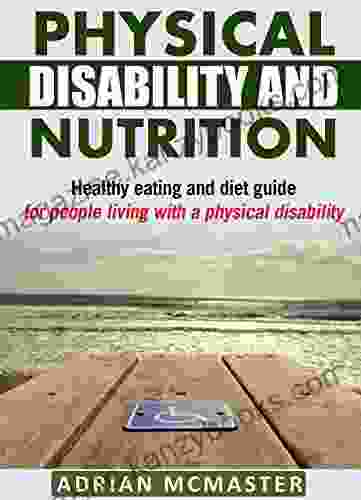Your Complete Guide to Barrett's Esophagus: Diagnosis, Treatment, and Related Conditions

What is Barrett's Esophagus?
Barrett's esophagus is a condition in which the flat, pink lining of the esophagus is replaced by a specialized type of tissue called columnar epithelium. This tissue is similar to the lining of the stomach and intestines. Barrett's esophagus is caused by chronic acid reflux, a condition in which stomach acid flows back into the esophagus. Over time, this acid can damage the esophageal lining, leading to the development of Barrett's esophagus.
4.1 out of 5
| Language | : | English |
| File size | : | 396 KB |
| Text-to-Speech | : | Enabled |
| Screen Reader | : | Supported |
| Enhanced typesetting | : | Enabled |
| Word Wise | : | Enabled |
| Print length | : | 1544 pages |
| Lending | : | Enabled |
Barrett's esophagus is a pre-cancerous condition, which means that it can increase your risk of developing esophageal cancer. However, not everyone with Barrett's esophagus will develop esophageal cancer. In fact, most people with Barrett's esophagus will never develop cancer.
Symptoms of Barrett's Esophagus
Barrett's esophagus often does not cause any symptoms. However, some people may experience:
* Heartburn * Regurgitation * Difficulty swallowing * Chest pain * Nausea * Vomiting
Causes of Barrett's Esophagus
The most common cause of Barrett's esophagus is chronic acid reflux. Acid reflux is a condition in which stomach acid flows back into the esophagus. This can happen for a number of reasons, including:
* A weak lower esophageal sphincter (LES). The LES is a muscle that acts as a valve between the stomach and the esophagus. When the LES is weak, it allows stomach acid to flow back into the esophagus. * Hiatal hernia. A hiatal hernia occurs when the stomach pushes through an opening in the diaphragm. This can also lead to acid reflux. * Obesity. Obesity can increase the pressure on the stomach, which can lead to acid reflux. * Pregnancy. Pregnancy can also increase the pressure on the stomach, which can lead to acid reflux.
Risk Factors for Barrett's Esophagus
Certain factors can increase your risk of developing Barrett's esophagus, including:
* Age. Barrett's esophagus is more common in people over the age of 50. * Gender. Men are more likely to develop Barrett's esophagus than women. * Race. White people are more likely to develop Barrett's esophagus than African Americans or Asians. * Obesity. Obese people are more likely to develop Barrett's esophagus. * Smoking. Smoking cigarettes can damage the esophageal lining, which can increase your risk of developing Barrett's esophagus. * Alcohol use. Heavy alcohol use can also damage the esophageal lining, which can increase your risk of developing Barrett's esophagus.
Diagnosis of Barrett's Esophagus
Barrett's esophagus is diagnosed with an upper endoscopy. This is a procedure in which a thin, flexible tube with a camera on the end is inserted into your esophagus. The camera allows your doctor to see the lining of your esophagus and identify any abnormalities.
If your doctor sees any areas of Barrett's esophagus, they will likely take a biopsy. A biopsy is a procedure in which a small piece of tissue is removed from your esophagus and examined under a microscope. This will help your doctor confirm the diagnosis of Barrett's esophagus.
Treatment of Barrett's Esophagus
The treatment for Barrett's esophagus depends on the severity of the condition. If you have mild Barrett's esophagus, your doctor may recommend lifestyle changes, such as:
* Losing weight * Quitting smoking * Reducing alcohol intake * Eating a healthy diet * Avoiding foods that trigger your acid reflux
If you have more severe Barrett's esophagus, your doctor may recommend medication or surgery. Medications that can be used to treat Barrett's esophagus include:
* Proton pump inhibitors (PPIs). PPIs reduce the production of stomach acid. * Histamine-2 receptor antagonists (H2RAs). H2RAs also reduce the production of stomach acid. * Promotility agents. Promotility agents help to move food and liquids through the digestive tract more quickly, which can help to reduce acid reflux.
Surgery may be an option for people with severe Barrett's esophagus who do not respond to medication. Surgery can be used to remove the damaged esophageal lining and replace it with healthy tissue.
Related Conditions
Barrett's esophagus is often associated with other conditions, such as:
* Gastroesophageal reflux disease (GERD). GERD is a condition in which stomach acid flows back into the esophagus. GERD can lead to Barrett's esophagus if it is not treated. * Esophageal cancer. Esophageal cancer is a cancer that starts in the esophagus. Barrett's esophagus is a risk factor for esophageal cancer. * Esophagitis. Esophagitis is an inflammation of the esophagus. Esophagitis can be caused by acid reflux or other factors.
Outlook for Barrett's Esophagus
The outlook for Barrett's esophagus depends on the severity of the condition. If you have mild Barrett's esophagus, your outlook is good. However, if you have more severe Barrett's esophagus, you have a higher risk of developing esophageal cancer.
There is no cure for Barrett's esophagus, but it can be managed with lifestyle changes, medication, or surgery. If you have Barrett's esophagus, it is important to follow your doctor's recommendations for treatment and follow-up care.
4.1 out of 5
| Language | : | English |
| File size | : | 396 KB |
| Text-to-Speech | : | Enabled |
| Screen Reader | : | Supported |
| Enhanced typesetting | : | Enabled |
| Word Wise | : | Enabled |
| Print length | : | 1544 pages |
| Lending | : | Enabled |
Do you want to contribute by writing guest posts on this blog?
Please contact us and send us a resume of previous articles that you have written.
 Book
Book Novel
Novel Page
Page Chapter
Chapter Text
Text Story
Story Genre
Genre Reader
Reader Library
Library Paperback
Paperback E-book
E-book Magazine
Magazine Newspaper
Newspaper Paragraph
Paragraph Sentence
Sentence Bookmark
Bookmark Shelf
Shelf Glossary
Glossary Bibliography
Bibliography Foreword
Foreword Preface
Preface Synopsis
Synopsis Annotation
Annotation Footnote
Footnote Manuscript
Manuscript Scroll
Scroll Codex
Codex Tome
Tome Bestseller
Bestseller Classics
Classics Library card
Library card Narrative
Narrative Biography
Biography Autobiography
Autobiography Memoir
Memoir Reference
Reference Encyclopedia
Encyclopedia Kerry Alison Wekelo
Kerry Alison Wekelo Sherry Peters
Sherry Peters Keping Wang
Keping Wang Kenneth Choi
Kenneth Choi Kevin Donaldson
Kevin Donaldson Mary Holland
Mary Holland Whitney L Marshall
Whitney L Marshall Shara Ogin
Shara Ogin Kevin J Todeschi
Kevin J Todeschi Taste Academy
Taste Academy Kenneth L Holmes
Kenneth L Holmes Kerri Sparling
Kerri Sparling P D Eastman
P D Eastman W Scott Persons
W Scott Persons Nick Bruel
Nick Bruel T L Greylock
T L Greylock Kerstin Menzel
Kerstin Menzel Kim Horner
Kim Horner Pedro Gea Martinez
Pedro Gea Martinez Kim Cox
Kim Cox
Light bulbAdvertise smarter! Our strategic ad space ensures maximum exposure. Reserve your spot today!

 Bob CooperThe Berenstain Bears Big Bear Small Bear: A heartwarming and educational book...
Bob CooperThe Berenstain Bears Big Bear Small Bear: A heartwarming and educational book...
 Joe SimmonsUnlock the Secret Power of Pyramids: Unleash the Ancient Wisdom for Health,...
Joe SimmonsUnlock the Secret Power of Pyramids: Unleash the Ancient Wisdom for Health,... Josh CarterFollow ·18.9k
Josh CarterFollow ·18.9k Clinton ReedFollow ·6.8k
Clinton ReedFollow ·6.8k Salman RushdieFollow ·16.7k
Salman RushdieFollow ·16.7k Dan HendersonFollow ·2.3k
Dan HendersonFollow ·2.3k Roger TurnerFollow ·12.3k
Roger TurnerFollow ·12.3k Ernest J. GainesFollow ·12.7k
Ernest J. GainesFollow ·12.7k Stuart BlairFollow ·14.5k
Stuart BlairFollow ·14.5k Jordan BlairFollow ·2k
Jordan BlairFollow ·2k

 Ernesto Sabato
Ernesto SabatoLoving Table: Creating Memorable Gatherings
Gatherings...

 Mark Twain
Mark TwainLifestyle After Cancer: The Facts
Cancer is a life-changing...

 Keith Cox
Keith CoxUnlocking the Nutritional Needs of Individuals with...
Individuals with physical disabilities...

 Rubén Darío
Rubén DaríoHandbook And Guide To Evaluation And Treatment
Empowering Healthcare...

 Andy Hayes
Andy HayesUnveiling the Truth: "Garden Myths" by Robert Pavlis...
The world of gardening is often filled with a...
4.1 out of 5
| Language | : | English |
| File size | : | 396 KB |
| Text-to-Speech | : | Enabled |
| Screen Reader | : | Supported |
| Enhanced typesetting | : | Enabled |
| Word Wise | : | Enabled |
| Print length | : | 1544 pages |
| Lending | : | Enabled |










